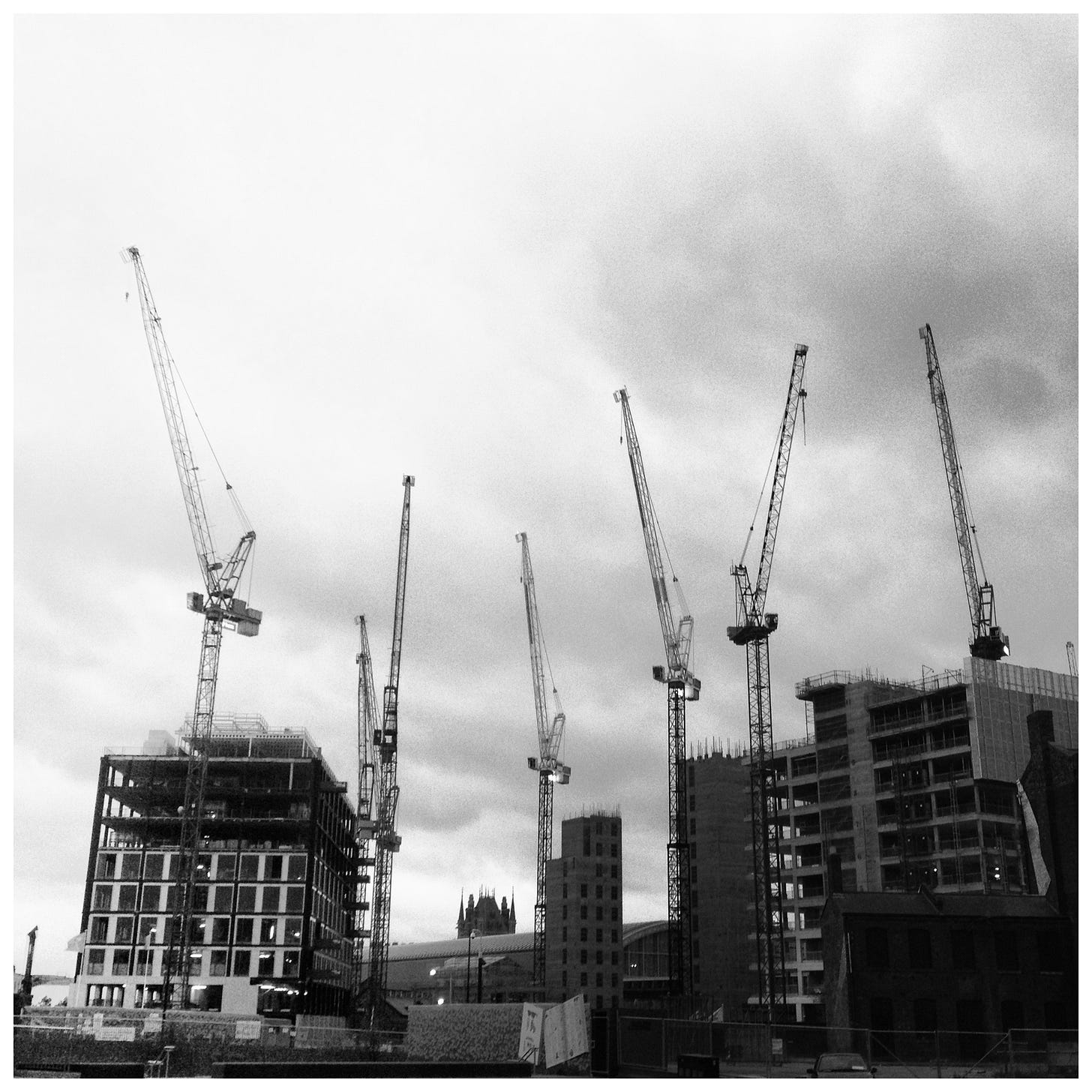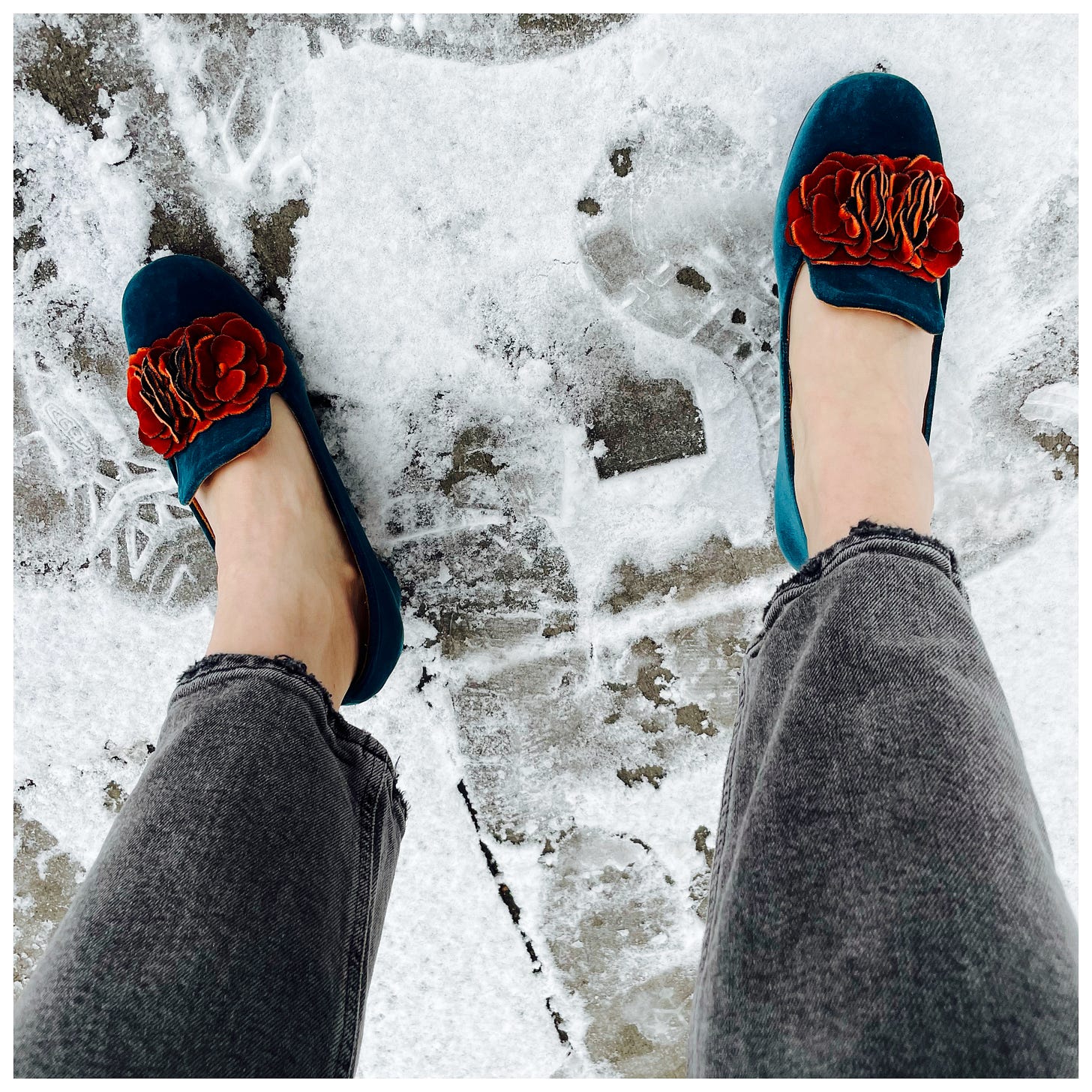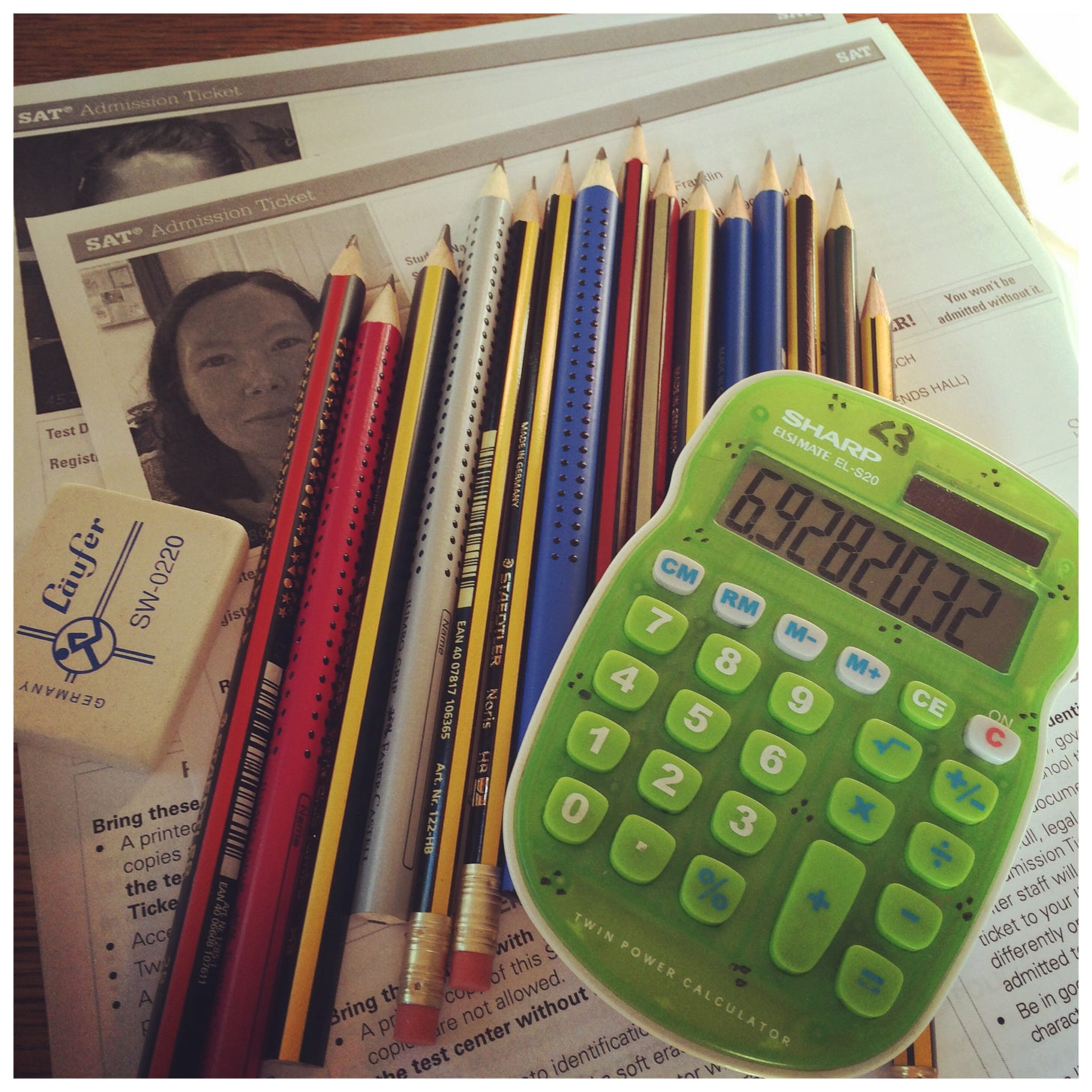Waking Up Early to Ponder the Future of Urban Analytics
The Future’s So Bright, I’ve Got to Throw Shade
It was the final day of a long conference and I had an 8:30am panel on “The Future of Urban Analytics”.1
There was a lot in the mix—the early hour, the session format, and, of course, the topic of Urban Analytics.
Naturally, I woke up at 4am to mull over the assigned topic. At first, I lay quietly in bed in the darkness, contemplating the weight and importance of the subject. Then, later, as the sun rose, I stood pensively at my hotel room window and confronted the really hard questions: Why did I say yes to this? What even is Urban Analytics?
The time slot meant we might not have much of an audience, so it was tempting to leave my panel responses in my head and allow them to flow, unhindered, directly to the audience in real time. History has shown this to be a risky route and I cannot recommend, unless you are a gambler by nature.2
Panel session formats also present challenges. Panels—generally some variation on 4–5 speakers in conversation with each other—are a tricky sort of conference beast, demanding a higher degree of audience entertainment value than, say, a poster or paper presentation. Ideally, panels are fun for both panellists and session attendees.
I said, ideally.
And what about the topic? I may not be entirely sure what Urban Analytics is, but I’m pretty sure I don’t do it. This largely explains my early rise on the day.
Like a good girl, after standing at the window for a while, I decided to make some notes. Just in case.
tl;dr: the future is analytical, for better or for worse, so I think we should do our best to make it for the better.
1. A Rose by Any Other Name
It’s easy to get hung up on the names of things. What distinguishes Urban Analytics from, say, Spatial Analysis, City Science, or Geographic Data Science? Will our expectations about the future of the sub-field change, if we call it something else?
I don’t think so.
More importantly, though, for the purposes of this panel (and essay), everything I have to say here applies equally to Quantitative Human Geography, GIScience, and Urban Analytics.
I’ve written a bit about geographical analysis and how it fits into the other geographical sciences here.
2. Fiddling While Rome Burns
By Rome, I mean the world. We are beset by massive local and global crises and what is Urban Analytics doing to fix it?
Mostly nothing.
I know many will demur, but I stand by this one hot take. We can do better.
Research is political. Everything we do means there is something else that is not done. This holds for our own, individual research, but also for the research that isn’t done by others because we’ve claimed the resources, topical territory, or attention.
I feel as powerless as the next person to fix the world with my research, but we should at a minimum challenge ourselves to articulate why what we do matters.
We wrote about the importance of geographical analysis here.
3. Theory, Theory, Theory
Theory is simply a fancy word for “our understanding of how the world works”. Urban Analytics doesn’t need to be in the business of theory generation or even, I suppose, theory testing, but our research should hang on some sort of theoretical or conceptual framework.
To me, theory is a convenient way of pushing ourselves to answer the “so what?” question in our analytics and research, which is another way of getting at Point 2, above.
If we want an Urban Analytics that matters, our research needs to document, explain, evaluate, or improve.
Corollary: it can’t all be documentation and more of it should aim to improve.
I wrote about theory and quantitative human geography here.
4. Data, Data, Data
Data is fun(damental). Much of what we do in Urban Analytics is because we can: new, untapped, and exciting forms of information push us to develop innovative methods and applications. So the future of Urban Analytics hinges on data.
That is the standard vanilla take on data.
The Achilles heel of data, though, is the eternal question whether we are measuring the things we think we are measuring. Or want to be measuring. Sure, this is partly data provenance but it’s arguably mostly about how we encode and measure concepts.
In the panel, I highlighted a number of constructs we take for granted that are increasingly fuzzy or complicated, regardless of data source:
Gender
Race and ethnicity
Place of work
Migrant
Resident
Elderly (and retired!)
Household
And this is in addition to known geographical bugbears, like defining “urban”!!
For example, how do we think about commuting and transportation when our understanding of the thing—and the variables we use to capture that understanding—is so much in flux? New data won’t necessarily help us here!
I’ve written some about this—but not as much as I’d like to—here.
5. Heterogeneity, Heterogeneity, Heterogeneity
Much like “location, location, location,” this one simply rolls off the tongue. What is the point of our research? Why do we do it?
My emphasis on theory, above, might suggest that all [Urban Analytics] research should be in service to furthering our greater understanding—and improvement—of the world.
The reality is that there are lots of reasons that research is produced:
The data are there.
Publications and research funding are how we get and keep our jobs.
We are compelled to do it by a supervisor or boss.
It’s fun.
Let’s not forget the fun!
A hill I’m willing to die on is that diversity—heterogeneity—is a good thing. It takes a variety of people, doing research on a variety of topics, for a variety of reasons, and from a variety of perspectives to make a vibrant and fertile sub-field.
This paper, mentioned already above, makes this point, but in 10,000 words.
Municipal Math
In between lying in the darkness and standing pensively at the window, there was an intermediate phase where I wondered if my answers would be different if Urban Analytics were called something else.
Like, “Municipal Math”.
I don’t have a point here, except that Municipal Math made me laugh and, sometimes, the early morning thoughts are the best thoughts. I solve all manner of problems cogently, incisively and creatively in the darkness of the night.
The panel went fine, I think. We had an audience. Hopefully, we were moderately entertaining.
It felt good to be among colleagues again, doing what we excel at: ardently discussing subjects that have little real-world relevance.
Lest all the words that follow give a false impression, this was a fantastic panel chaired by Dani Arribas-Bel and organised by him, Alex Singleton, Nik Lomax, and Mark Birkin.
I am not.








